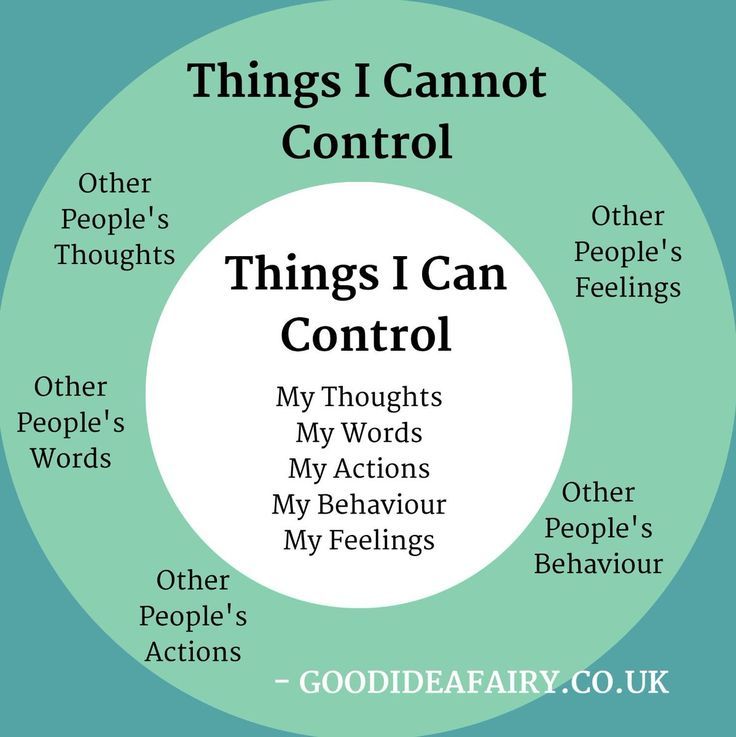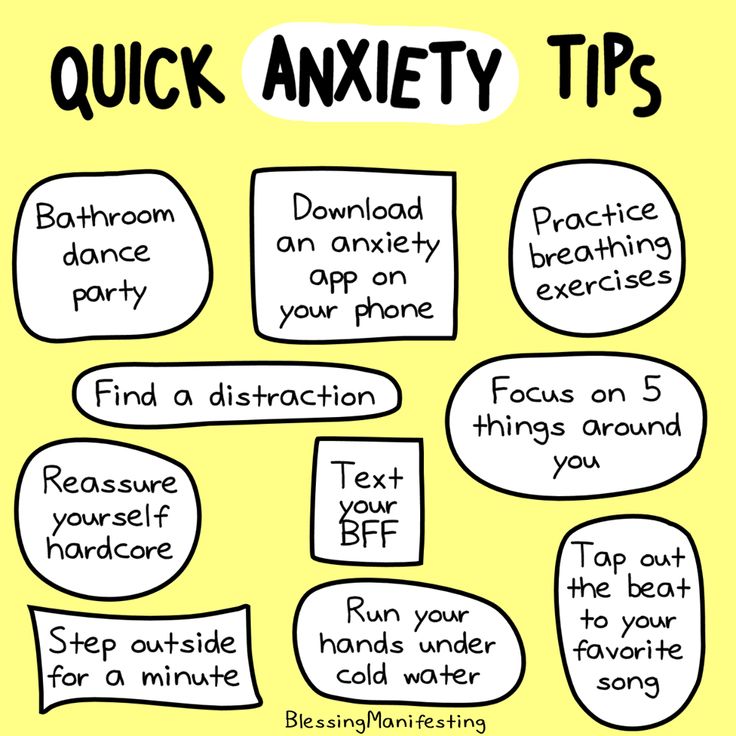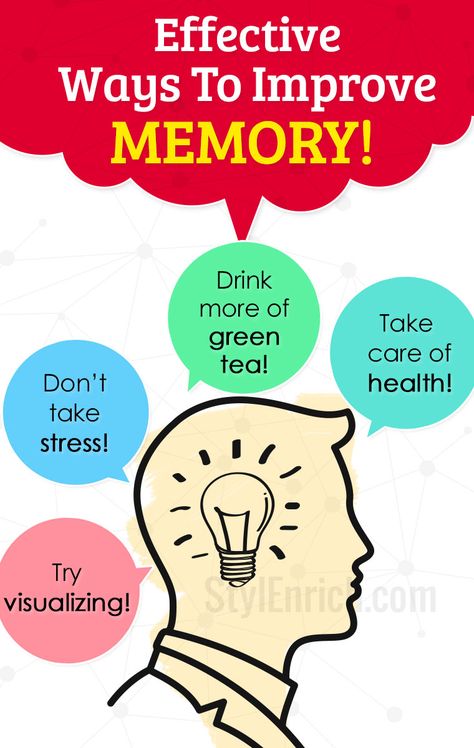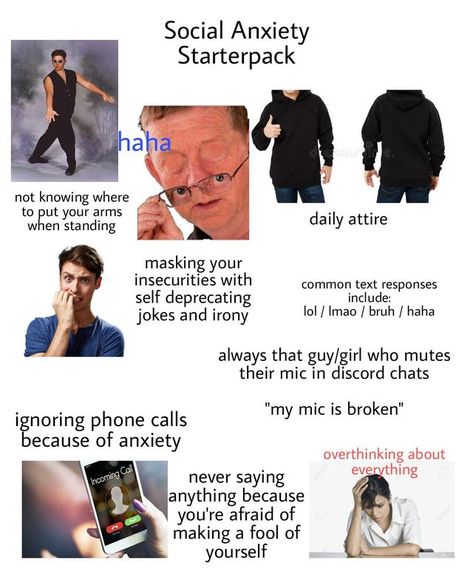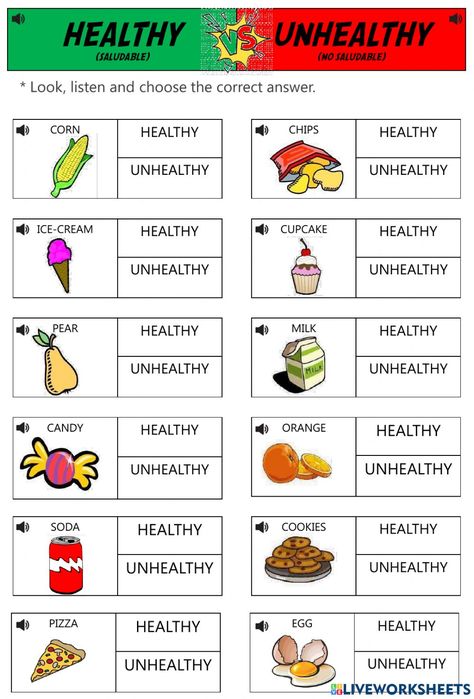You cant control other people
You Can't Change Someone Else. But You Can Do This.
Source: clownbusiness/Shutterstock
So many things bother us—people, mostly. But pretty much everything has the power to upset our basic sense of well-being. Our tendency, when things bother us, is to blame the other person or situation for getting it wrong and thus causing our suffering. Once we have identified what we consider the cause of our disturbance, we usually set out to try and fix it. We attempt to change the other person’s behavior or the situation into something we consider right, or at least something that will not bother us.
There is no doubt that people and situations can be the cause of our discontent. If someone swings a baseball bat into my knee, the pain I feel is directly caused by that action. If a friend speaks unkindly to me, I feel hurt, a direct result of his choice of words. We impact one another; there are people and situations—infinite ones it seems—that can cause our suffering.
That said, there is nothing wrong with trying to change a situation that we don’t like or that makes us unhappy. Such efforts are wise and adaptive and a way of taking agency in our lives. We need to try to change what’s not working, if we can. But this is not a post about how to more skillfully change those around us so that they can better fit into how we want them to be. This is about what happens when we are not successful at changing those around us, and cannot change the situation that is causing us pain.
I guess you could call it Plan B.
When we cannot change the cause of our suffering, many of us continue to blame the other person or situation. This may provide us with some relief, at least for a while. But what happens when trying to change the other has failed and continuing to blame is not actually making us feel better either?
Where do we go when we have run out of moves?
Freedom from the whole blaming/fixing cycle, ironically, comes from moving our attention away from the other person/problem that is to blame/fix, and turning that attention onto ourselves.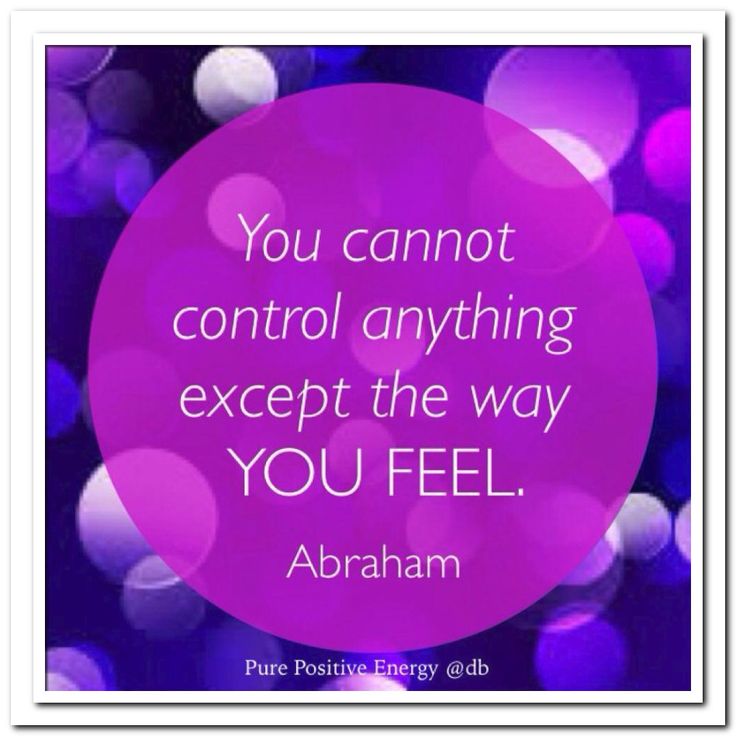 When you hear that it’s time to look into yourself, you may assume (as most people do) that someone is telling you to discover how you are also to blame for the suffering you are experiencing.
When you hear that it’s time to look into yourself, you may assume (as most people do) that someone is telling you to discover how you are also to blame for the suffering you are experiencing.
This assumption would be false.
I am not suggesting that you are to blame for anything, nor am I suggesting that you search yourself for fault. This step in the process—self-investigation, the step that creates real freedom from suffering—has nothing to do with blame.
To turn your attention into yourself is to ask the question: What does this situation or person’s behavior trigger in me? What pain is generated in me when I am confronted with this behavior or reality?
I was in a relationship with a blamer for years. The problems in his life were always someone or something else’s fault and the dialogue never moved much further than that. For years I tried to change him, encouraging him to be curious and use the situations that caused suffering as opportunities to bring some light to what the real suffering was about. Through the process, sadly, I too became entrenched in blame. I blamed his blaming for my own suffering; if only he weren’t a blamer, I wouldn’t be in pain. But in the end, he didn’t change, I didn’t change, and the situation didn’t change.
Through the process, sadly, I too became entrenched in blame. I blamed his blaming for my own suffering; if only he weren’t a blamer, I wouldn’t be in pain. But in the end, he didn’t change, I didn’t change, and the situation didn’t change.
And then I started thinking that probably I should take my own advice: Take the focus off the other and get curious about my own experience. Not what I was also doing (wrong) to cause the situation, but rather, what experiences, feelings, memories, beliefs, etc., were his blaming behavior really triggering in ?
What was I experiencing that made the blaming so hard to bear?
What I discovered was simple but profound—and profoundly healing. I found the center of my own truth, what I was really in contact with inside myself in relation to the blaming. Interestingly, naming what I was experiencing and what made the blaming so painful for me did not change my partner’s behavior, nor did it make the experience that arose in me disappear.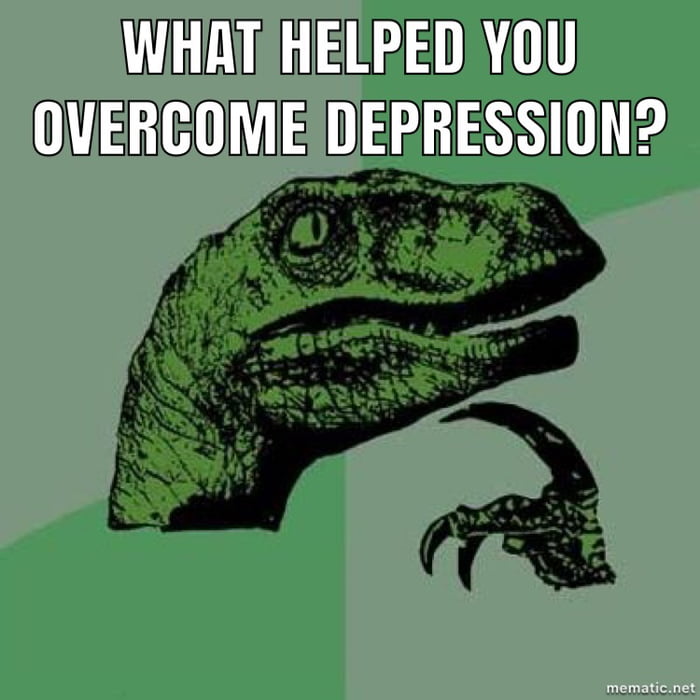 What it did, however, was ease the excruciating suffering that existed for me in the situation. Rather than the blaming setting off a screeching fire alarm inside me—a code-red emergency—I could witness the blaming behavior, know what it put me in touch with, and stay calm and non-reactive. I didn’t need to change the behavior so that I could get away from some unknowable, but unbearable experience inside myself. I could say to myself (with kindness), "Oh right, this blaming triggers this such and such in me, which has a history of its own and is understandable. That’s what’s here now." And then, oddly, the whole thing is kind of done. The experience that was so threatening, and the cause of so much pain, is deactivated. Its wires are cut. The emergency of making the situation or behavior stop eases when the inarguable truth of what is happening inside us is clear. The suffering doesn’t need much more than that.
What it did, however, was ease the excruciating suffering that existed for me in the situation. Rather than the blaming setting off a screeching fire alarm inside me—a code-red emergency—I could witness the blaming behavior, know what it put me in touch with, and stay calm and non-reactive. I didn’t need to change the behavior so that I could get away from some unknowable, but unbearable experience inside myself. I could say to myself (with kindness), "Oh right, this blaming triggers this such and such in me, which has a history of its own and is understandable. That’s what’s here now." And then, oddly, the whole thing is kind of done. The experience that was so threatening, and the cause of so much pain, is deactivated. Its wires are cut. The emergency of making the situation or behavior stop eases when the inarguable truth of what is happening inside us is clear. The suffering doesn’t need much more than that.
As we all know, we can’t control anyone else’s behavior, and we can’t make another person want to or be able to change.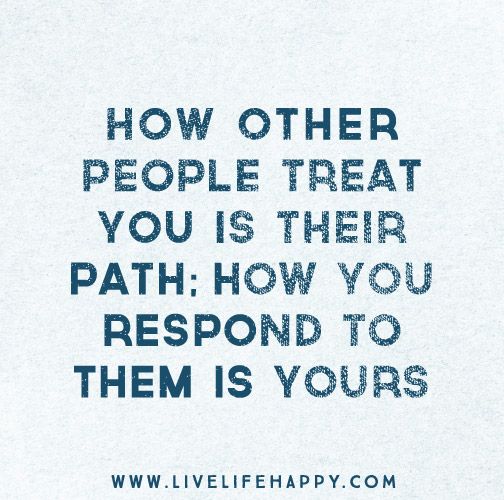 But we can always make the choice to shift our attention inward, to focus the lens of curiosity onto ourselves. And remember, by investigating our own experience, we are not condoning the behavior that triggers our suffering, nor are we assuming responsibility for having caused it. Getting curious about what is happening inside us in a particular situation, naming it, understanding it, unpacking its history, and bringing compassion to it—this the surest path to freeing oneself from the cycle of blame and the need to change what we don’t like. Ultimately, self-awareness is the most powerful and profound antidote to suffering.
But we can always make the choice to shift our attention inward, to focus the lens of curiosity onto ourselves. And remember, by investigating our own experience, we are not condoning the behavior that triggers our suffering, nor are we assuming responsibility for having caused it. Getting curious about what is happening inside us in a particular situation, naming it, understanding it, unpacking its history, and bringing compassion to it—this the surest path to freeing oneself from the cycle of blame and the need to change what we don’t like. Ultimately, self-awareness is the most powerful and profound antidote to suffering.
People Who Can't Control Themselves Try to Control Others
Do your feelings, anxieties, and insecurities run away with you and dominate your relationships?
Are you chronically late or procrastinating, and expecting other people to put up with it?
Do you always have to be right in an argument?
Do you get triggered and lash out verbally or physically in ways you later regret?
Do you need your partner to apologize and say he or she is sorry after a fight in order to get over it?
These are all signs of difficulty regulating and modulating your inner emotional world. None of us are perfect. Everyone flies off the handle sometimes, or gets lost in their own thoughts and feelings. But many people have difficulty "keeping themselves together." And however understandable or explainable these reactions are, there's an unavoidable consequence for other people in their lives.
None of us are perfect. Everyone flies off the handle sometimes, or gets lost in their own thoughts and feelings. But many people have difficulty "keeping themselves together." And however understandable or explainable these reactions are, there's an unavoidable consequence for other people in their lives.
During the course of conducting workshops or doing therapy, I often talk about learning to regulate your own emotions, calm your own anxieties, soothe your own mind, and lick your own emotional bruises. When I describe these abilities as emotional autonomy, sometimes I see people who don't like where they think this is heading. They hear this as me saying:
- They can never need or ask for help.
- It's weak to do so.
- They have to be perfect.
- They have to put up with whatever someone does to them — i.e., just "suck it up."
- The goal of life is to never need anyone.
- It's not OK to want your partner to soothe you.
I have none of these in mind, but their minds often go to their fears: Things like being expected to function like an adult. Or ceasing to be able to control others with their emotional hypersensitivity. Or others ceasing to put up with their crap or accept their limitations. They picture me as the eternal "rugged individualist," advocating an "I don't need anybody attitude" and ignoring people's healthy dependency needs. Needless to say, these are not easy people to win over. But it happens more often than not and it's interesting how this occurs.
Or ceasing to be able to control others with their emotional hypersensitivity. Or others ceasing to put up with their crap or accept their limitations. They picture me as the eternal "rugged individualist," advocating an "I don't need anybody attitude" and ignoring people's healthy dependency needs. Needless to say, these are not easy people to win over. But it happens more often than not and it's interesting how this occurs.
First off, I point out that if I was advocating an "I am a rock, I am an island" philosophy, I wouldn't be talking about their impact on other people!
Next, I tell them a basic theorum of my Crucible Approach, which makes even the most defensive listener nod in agreement: People who can't control themselves control the people around them.
To help folks see the profoundness of this notion, I offer different mental images that include:
- People who can't control their emotions, like their anger or hair-trigger temper.
- People who are insanely jealous or stalking their partner.
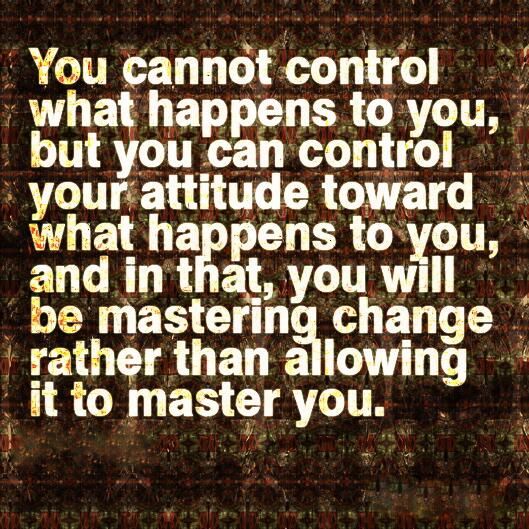
- Emotionally insecure people who demand constant affirmation from others.
- People who abuse drugs and alcohol as ways of anesthetizing their feelings, dampening their anxieties, or drowning their sorrows.
- Parents who push their children to be outstanding athletes, musicians, artists, or students because the parents need the reflected glory.
Then I move to more difficult or more personally relevant examples, like:
- Parents who, once upset by their child, work themselves into an emotional frenzy and hold the child responsible.
- Partners who physically or emotionally batter their mate.
- Parents who take their children hostage through emotional withdrawal or rejection.
- Parents who can't control their sexual impulses towards their children.
By this point, defensive or antagonistic listeners usually see the importance of emotional autonomy. They stop picturing this as everyone going off in their own self-centered direction. They realize emotional autonomy lets people get closer together in healthier, more stable, and more satisfying ways.
They realize emotional autonomy lets people get closer together in healthier, more stable, and more satisfying ways.
When people can't modulate their own anxieties and insecurities, one partner's options and priorities are sacrificed on the alter of the other's fears, whether those options are a new baby, a new job, or new sexual behavior. You also fear that if your partner doesn't need you, because he or she can take care of himself/herself, then he or she wouldn't want you or choose you. This makes you fear your partner becoming more emotionally autonomous as much as you fear it in yourself.
The Arnold Schwarzenegger / Tiger Woods / Elliot Spitzer/ John Edwards / etc. debacles demonstrate a completely different view of "people who can't control themselves control the people around them." When people depend on getting a positive sense of self from others, their partners' preferences for monogamy often go up in smoke, and the marriage revolves around containment by implanting false beliefs.
Speaking to the best in people makes them see farther than their own immediate self-interest. That's why I truly hope "the best in you" is reading this. If so, I'm sure you'll understand two final thoughts:
- One of the kindest things you can do for the people you love is to develop more emotional autonomy.
- Managing your own emotions, anxieties, and feelings of self-worth gives other people back their lives.
Read Part 2 here.
© 2011 by Crucible Institute. All rights reserved.
How to stop controlling everything? | PSYCHOLOGIES
105 732
“Check if the child has left his hat at home and if the housekeeper turned off the stove, remind the husband about the check-up, and the godmother about visiting the doctor, order a cake for the niece, hurry up colleagues with a report, ask them to call partners ... although No, better call yourself.
The head of one of the departments of a large international firm, 33-year-old Oksana admits that such a stream of thoughts is spinning in her head from morning to evening almost non-stop: “On the one hand, it seems to me that my career successes would have been much more modest, not if I had the habit of keeping everything under control.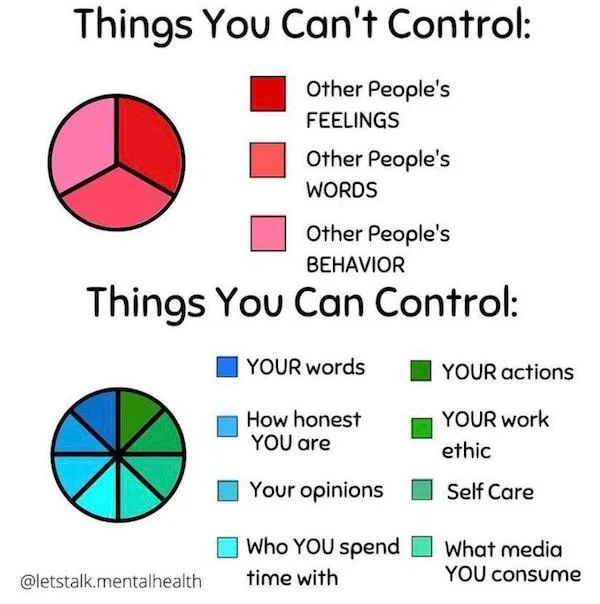 On the other hand, relatives often complain that I am like a "soul". Yes, and I myself sometimes get tired of the constant need to either take everything on myself, or “carry out an audit”.
On the other hand, relatives often complain that I am like a "soul". Yes, and I myself sometimes get tired of the constant need to either take everything on myself, or “carry out an audit”.
As for the desire to dictate to others how to live and what to do, a special term has been coined for this phenomenon — control freak (even without translation, it is clear that the word “care” and its cognate words are not here). Many justify this behavior with their own perfectionism. “His price,” warns psychologist Yevgeny Osin, “is the effort expended and the quality of relationships with relatives and colleagues.”
Fear, anxiety - that's what makes us "keep our finger on the pulse"
The "controller-perfectionist" himself loses mental resources, and others get tired of his nitpicking and do not understand why it is so important to do some completely formal thing perfectly . Often at the heart of the pursuit of excellence lies the fear of failure or disapproval from others.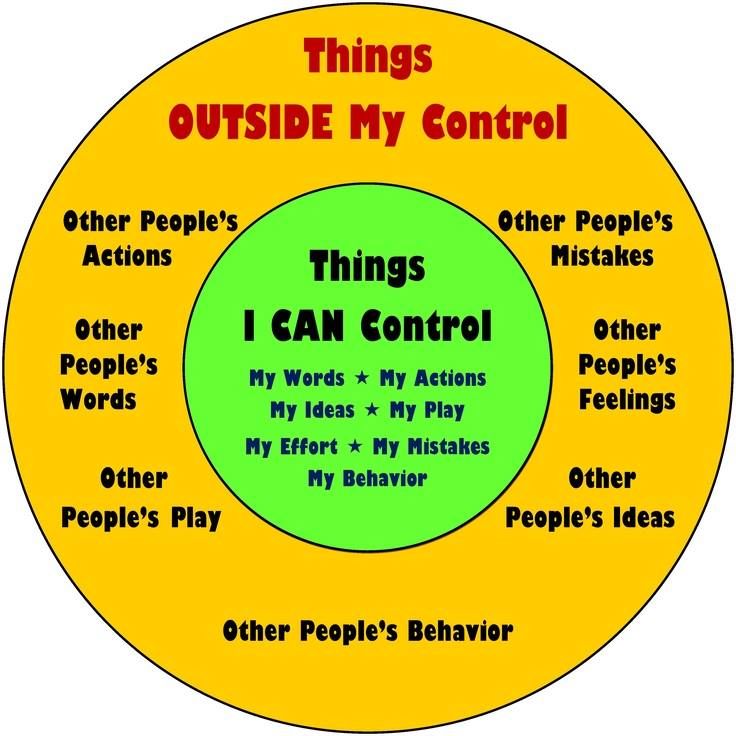
“When it is important for a person that everything is done flawlessly, he tries to control all the steps and cannot entrust things to others,” notes Osin. “This over-controllability can be good for business, but sometimes it just gets in the way.”
Fear, anxiety - that's what makes us "keep our finger on the pulse." And it does not matter how large-scale and really negative outcome we are afraid of: an explosion of domestic gas or imperfect performance of some - even the most insignificant - business at work.
“As a rule, such life beliefs are either transmitted, for example, by parents (“You have to control everything”), or become the result of some events,” explains clinical psychologist Yakov Kochetkov. - Moreover, he does not pay much attention to situations when a person did not control something and nothing happened, because they do not correspond to beliefs. What is remembered is what confirms them: say, someone forgot to turn off the iron, and a fire broke out - an obvious terrible consequence of a lack of control.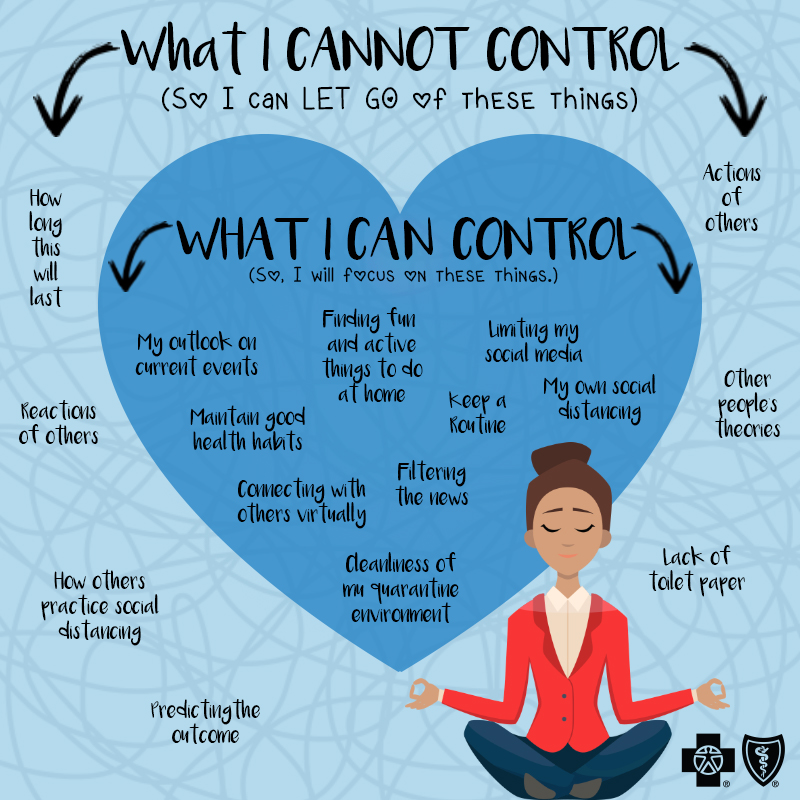
What is good and bad about this habit?
Control is evolutionarily justified and protects us from negative, including truly dangerous situations. Who knows if mankind would have survived if primitive people had not been on the alert. And for a modern person, elementary control skills (and the basics of safety) are not superfluous: look around at a pedestrian crossing, hold a bag in a crowded place, check if the oven is turned off before leaving the house.
Another thing is that not everything requires our control and, moreover, not everything is subject to it. “People with controlling behavior are characterized by an increased level of anxiety,” notes Yakov Kochetkov. - They often try to predict events that may not happen, spending a lot of effort on this. The most unpleasant thing for such people is situations that they cannot influence. For example, flying in an airplane. Often aerophobia occurs precisely among those who are used to being responsible for everything.
The released energy can be used to achieve some more important goals than constant control and struggle with anxiety
Most of us have been convinced more than once that this is only an illusion, that our vigilant control can protect us from any unforeseen situations and troubles.
There are different degrees of desire for control. The extreme, most pronounced, is called obsessive-compulsive disorder (formerly known as obsessive-compulsive disorder). Among other things, it manifests itself in the performance of a certain sequence of actions, for example, in repeated checks (is the light turned off? Is the gas? Sure?) or other repetitive actions (washing hands with soap three times in a row).
Yakov Kochetkov believes that in this case the intervention of a specialist is necessary. According to Evgeny Osin, one can live successfully with this disorder. But: "If you cope with it, then the released energy, strength and time can be used to achieve some more important life goals than constant control and struggle with anxiety. "
"
How to stop controlling everything?
Yakov Kochetkov suggests the following technique: “In non-clinical cases of striving for control, you can set up an experiment: try to gradually deviate from your rules. For example, start delegating authority - transfer some of the responsibilities to Vasya and see if he can do it (and think about whether the consequences will be catastrophic if he doesn’t).
Be careful not to change your habits abruptly. Our beliefs are insidious: if you choose a task that really fails without our control, it will turn into a self-fulfilling prophecy, and you will remain in the opinion that nothing should be left to chance. Start small.
Ask yourself if overcontrol helps or hinders you. Write down all the pros and cons (since you are asking this question, it means that you are already facing cons). The next task is to understand the origin of these beliefs. Where are they from? Is this a parental setting? Or the environment you were in?
Finally, try the expropriation procedure.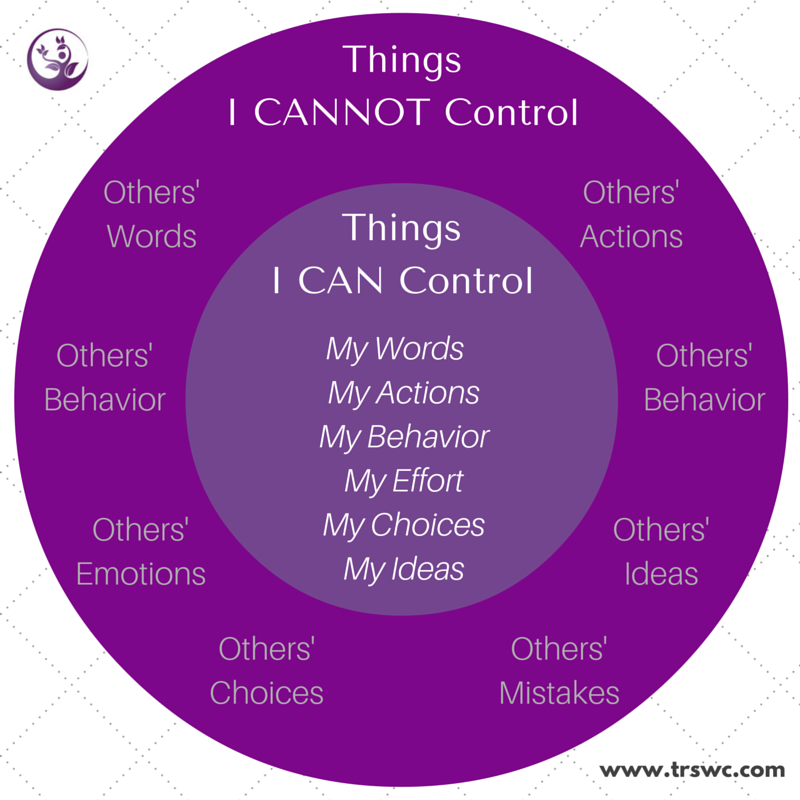 Add another voice to your internal dialogue, tell yourself, “Stop. I know that this habit arose under the influence of such and such. It does not help much, and experiments have shown that it can be dispensed with. Thanks to this remark, you can draw a line between your adult inner "I" and children's beliefs.
Add another voice to your internal dialogue, tell yourself, “Stop. I know that this habit arose under the influence of such and such. It does not help much, and experiments have shown that it can be dispensed with. Thanks to this remark, you can draw a line between your adult inner "I" and children's beliefs.
If the nervous system is overexcited and it is difficult to switch to rest mode, special relaxation practices can help
According to Evgeny Osin, in non-critical cases, relaxation and rest helps to cope with anxiety - the cause of overcontrol: “The ability to relax and let go of control is necessary in order to rest. At this time, we restore our strength. No wonder they say: a happy person is one who does not think about rest at work, and does not think about work during rest.
But if a person is not able to relax even at home (for example, thoughts about work, about how to earn money), over time this leads to mental exhaustion. Life loses color, nothing pleases, everyday affairs and the smallest, minor troubles and obstacles cause irritation. This means it's time to take a break. To do this, it is enough just to learn how to allocate time for yourself in everyday life and at this time really relax.
Life loses color, nothing pleases, everyday affairs and the smallest, minor troubles and obstacles cause irritation. This means it's time to take a break. To do this, it is enough just to learn how to allocate time for yourself in everyday life and at this time really relax.
Each person has their own recipes for recuperation: spend an evening with a book or chat with old friends, devote time to beauty treatments or music, take a bath, wander in the park or exercise.
If the nervous system is overexcited and it is difficult to switch to rest mode, special relaxation practices developed by different cultures over the centuries can help: focusing on breathing or movement helps to return to yourself, to feel your own life, bodily practices of yoga or tai chi - to become internally free through the release of the body from muscle clamps.
American social psychologist and coach Amy Johnson advises answering the following questions:
- Control, among other things, is a consequence of fear.
 So what are you afraid of? What happens if you lose control of the situation? Are the consequences really that bad? You have already reminded your partner 14 times not to forget to buy eggplant. Are you so sure that their absence will spoil the evening?
So what are you afraid of? What happens if you lose control of the situation? Are the consequences really that bad? You have already reminded your partner 14 times not to forget to buy eggplant. Are you so sure that their absence will spoil the evening? - Your business is the course of things that you can influence. What you are now in control of, is it really your business? When we try to take control of what does not concern us, it does not lead to anything good.
- If you "let go" of the situation, won't you get a sense of freedom? It usually appears. Let this feeling help you loosen your grip.
The psychologist also offers the following algorithm:
- Think about why it is so important for you to control this situation.
- What gives you control? What do you get from it?
- Are you sure you get what you want?
- Accept that "under control" does not exist.
- Get rid of all your beliefs about control.
- The next time you find yourself trying to take matters into your own hands again, try to "go with the flow" and see what happens.

- Continue to "let go" and see what opportunities open up to you when you are not in control. What can you take away from this?
Text: Maria Ishchenko
New on the site
Rebellion of neural networks: the heads of tech companies called for the suspension of AI experiments due to potential danger
Social Media Fat Boom: A Chinese Exercise That Will Flatten Your Tummy
“My Mother-in-Law Says I Got My Baby But My Husband Doesn’t Stand Up for Me or Help”
Boost Your Creativity: Tips From a Nike Marketer
Double standards: why people don't like it when a wife is older than her husband
Manipulative parents: 3 typical tactics
"How to alleviate the symptoms of OCD without a doctor and therapy?"
“The man drank and beat me. Promises to improve if I return. Do you believe him?
Control freak: how to stop controlling everything and not piss off others
May 30, 2018 Adviсe
If you do not trust anyone, you must be aware of all events and always be sure that you are right - you have problems.
Who is a control freak? At any cost, he must manage the situation and achieve what he wants, even if he has to put serious pressure on other people.
Do not confuse them with purposeful people who know how to take responsibility. Control freaks don't act out of good intentions. They are ruled by fear.
How to recognize a control freak in yourself
Control freaks are not uncommon. We meet them almost every day, it's just that everyone has it expressed to varying degrees. How to understand that you or your loved ones are among them?
You are sure that everything depends only on you
You think that you can influence everything in this world. No decision will be made without your opinion, the snow will not melt, the birds will not fly south.
Everything must go according to plan and nothing else
You always make lists and plans, and the slightest deviation from the course is terrifying. A carefully planned trip to the cinema fell through, scrambled eggs slightly burnt? This is nothing but a disaster.
Your motto: if you want to do well, do it yourself
Delegating tasks and working in a team is by no means your forte. You are sure that no one else can do better. Whether it's a quarterly report, a beef chop, or flying a jet plane.
You don't trust people
Your level of distrust towards others reaches its maximum. You doubt the competence of specialists and sometimes take on even those tasks that you do not understand.
You think you know better than others
You don't skimp on advice because you know you know better. And until the last, you defend your opinion until they listen to it and do it the way it should.
You are always right
You must always be right. And let only someone try to doubt that what you said is the ultimate truth.
You are very critical of other people's mistakes
Since you know everything and are always right, you do not accept the mistakes of others. Moreover, according to your version, you can take control of any situation.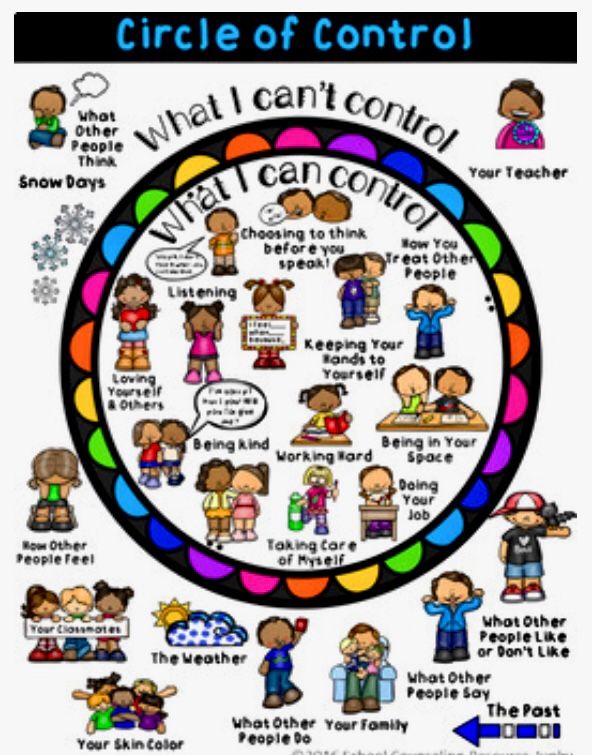
You tune in to a bad outcome of events and try to prevent it in advance. But dwelling on this is bad, especially in cases where it is impossible to influence the circumstances. And you are ready to give up all your strength to find a solution that does not really exist.
You should be aware of everything
How can you control a situation without knowing about it? You should be aware if someone is about to make a life-changing decision without asking.
You are a perfectionist in the last stage
You are always right, you know everything and will cope with any task better than an experienced specialist. Your pursuit of perfection has reached its limit. And even when it is no longer possible to do better, you are convinced that it is possible. Of course, provided that you do it yourself.
You have many fears
Your biggest fear is that something will not go according to plan. Therefore, you need to keep your finger on the pulse and at any time insure yourself against unforeseen situations.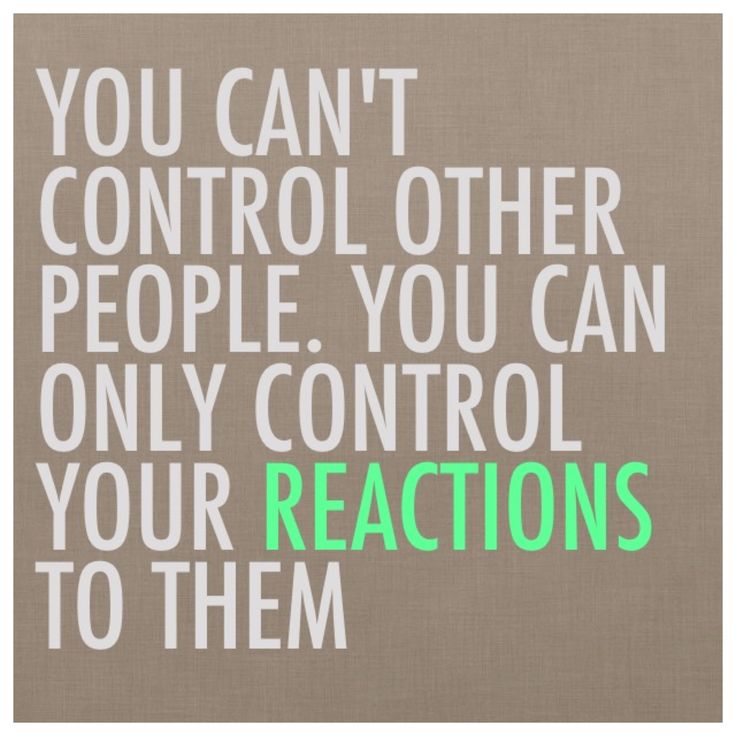 Unfortunately, no one canceled force majeure circumstances.
Unfortunately, no one canceled force majeure circumstances.
Where obsessive mania comes from
Oleg Ivanov
psychologist, conflictologist, head of the Center for Settlement of Social Conflicts.
An obsessive desire to always control the situation is evidence of a certain internal imbalance. As a rule, the reason for this behavior can be increased anxiety and the desire for power.
Control freaks are afraid of everything that disrupts their way of life and does not fit into their world. Their actions are a defensive reaction and an attempt to save themselves from unnecessary shocks.
As a result of the desire for power, total control is manifested in a person's keen desire to not only be aware of events happening to him and his relatives, but also to take direct part in them.
Sergey Kuzin
business coach, candidate of psychological sciences
Most often, all problems come from childhood. It happens that the child was too controlled, and when he grew up, he began to transfer the same control to others.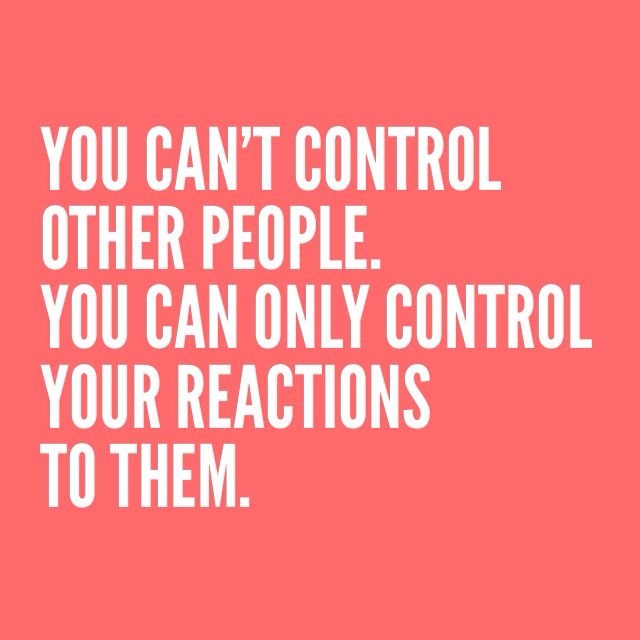
It turns out that sometimes we ourselves contribute to the emergence of control freaks. Excessive parental care in childhood leaves a mark and in the future can have a significant impact on a person's behavior pattern.
Why it's bad
In everyday life
In addition to irritating others with constant pressure, first of all you torment yourself. A lot of energy is spent on solving non-existent problems, worrying about little things and trying to influence situations that are beyond your control. If you do not get the desired result, then you experience an internal tragedy. Even if the fact is that you did not put a second piece of sugar in your coffee. These experiences significantly reduce the quality of life, while you could direct the energy in another direction.
In a relationship
You don't like having your every breath controlled. Trust is the foundation of a strong and lasting relationship, but for a control maniac it is a painful topic.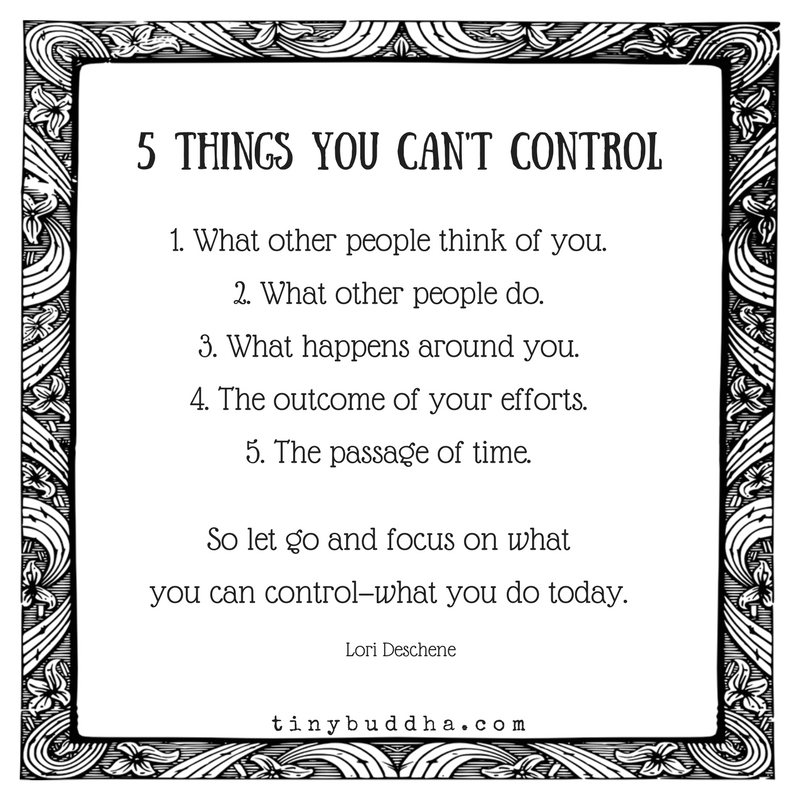 It is logical that the desire to be aware of all the actions of a partner, constant checking of messages on the phone and intrusive questions will not bring joy to any of the participants in the relationship.
It is logical that the desire to be aware of all the actions of a partner, constant checking of messages on the phone and intrusive questions will not bring joy to any of the participants in the relationship.
At work
Sitting up late finishing up reports, talking to clients, doing routine work at the same time when there is a whole department sitting idle is a little strange. Instead of performing your direct duties, you take on the tasks for which your colleagues are responsible. And not because they decided to help, but because of the lack of confidence in their competence. Even if you are a specialist with a capital letter, you are unlikely to be the first candidate for a promotion. After all, you do not know how to delegate, and, apparently, you think that you are working with fools, since you are doing everything for them.
How to deal with it
Oleg Ivanov
psychologist, conflictologist, head of the Center for Settlement of Social Conflicts.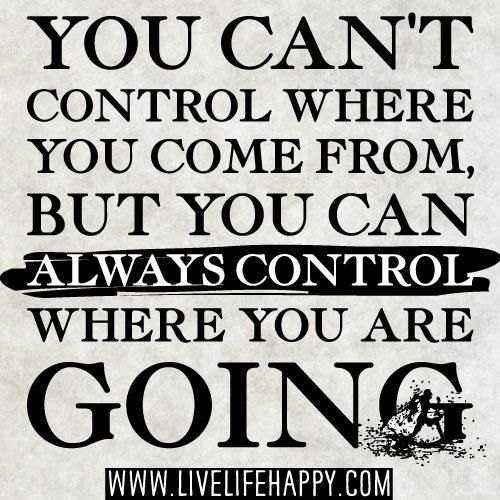
If you begin to notice these behaviors in yourself, I recommend spending a “totally crazy day” to relieve yourself. Take a different road to work, have breakfast in an unusual place, that is, change your usual way of life a little.
The expert explains that it is important to understand that nothing critical will happen if you are a little late for work, eat a slice of cake for lunch instead of soup, or take a walk in the evening instead of a planned trip to the store.
Exhale a little, loosen your grip and enjoy a spontaneous decision. The main thing is to realize the fact of the presence of a problem and give yourself a discharge so as not to bring the situation to a critical limit.
Sergey Kuzin
business coach, candidate of psychological sciences
Since the problem also lies in distrust, first of all, you need to deal with it. I recommend reading Stephen Covey Jr. "Speed of Trust". This book clearly explains that by trusting yourself, others and the situation, life becomes 10% easier and more interesting.
Dealing with distrust will solve at least one problem. And if distrust is the root of other, even bigger problems, then with one shot you will kill several birds with one stone.
What to do with relatives
If someone from your environment turned out to be a control freak, you need to learn to speak calmly, but clearly: “No, thanks.” And even better, more gently: “Thank you for your concern, but I will do as I see fit.”
Oleg Ivanov
psychologist, conflictologist, head of the Center for Settlement of Social Conflicts.
Sometimes it is difficult to point out shortcomings to close people, but in the case of control maniacs, this is necessary. You need to act delicately, but at the same time confidently, in order to draw a clear line in your relationship.
It is important to find suitable phrases for a particular person and discuss with him the points that do not suit you. It is enough for someone to hear: “Well, everything will be your way.